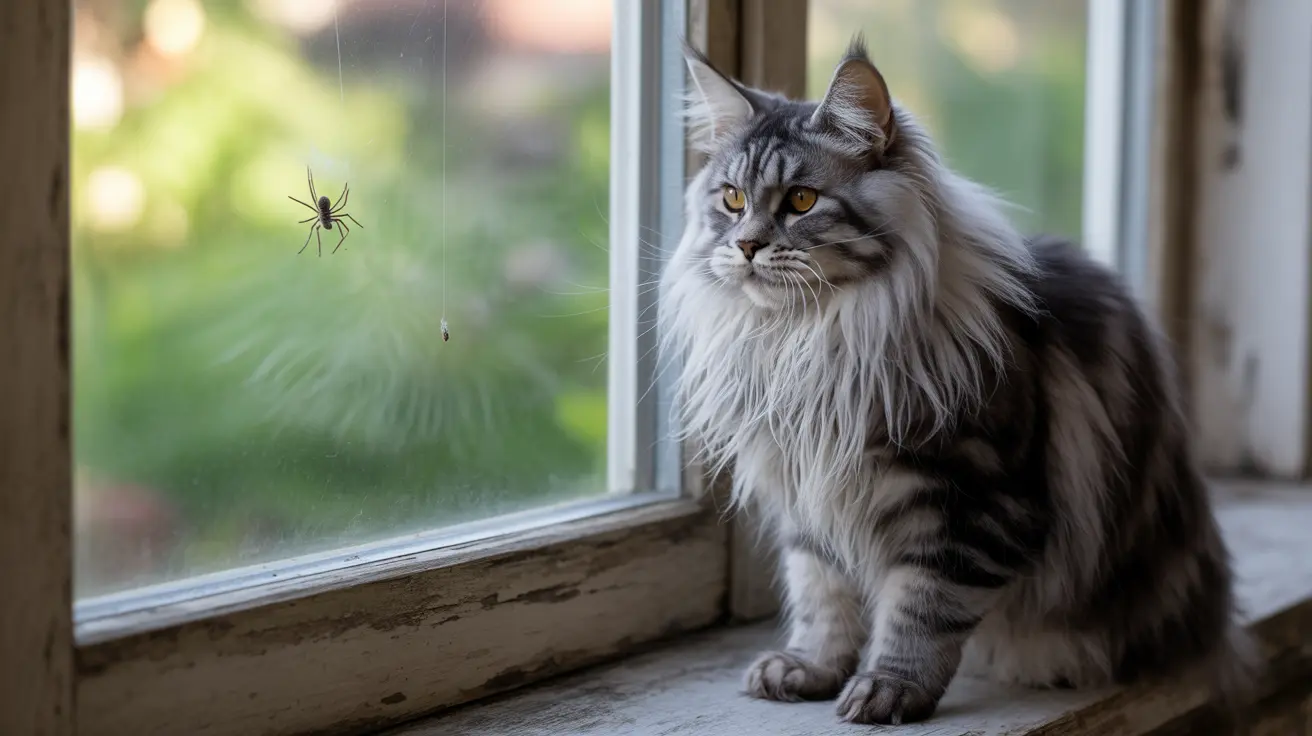Every cat owner has likely witnessed their feline friend stalking, pouncing on, or even consuming insects and spiders. This common behavior, while sometimes concerning for pet parents, is deeply rooted in cats' natural hunting instincts. But the pressing question remains: can cats eat spiders safely? Let's explore this fascinating aspect of feline behavior and address the safety concerns surrounding it.
Understanding why cats interact with spiders and other insects, and knowing the potential risks involved, can help pet owners make informed decisions about their cat's safety. This comprehensive guide will examine the instinctual behaviors behind bug hunting and provide clear guidance on what to do if your cat encounters or consumes spiders.
The Natural Hunter: Why Cats Chase Spiders and Bugs
Cats are born predators, equipped with keen senses and lightning-fast reflexes that make them excellent hunters. Their fascination with spiders and other insects stems from several key factors:
- Highly developed motion detection abilities that make moving insects irresistible targets
- Natural hunting instincts that remain strong even in well-fed domestic cats
- The release of pleasure-inducing hormones during hunting activities
- Mental and physical stimulation provided by stalking and catching prey
The Hunting Process: From Observation to Capture
When a cat spots a spider or bug, they typically follow a predictable sequence of behaviors:
- Initial observation with intense focus
- Characteristic chattering or clicking sounds
- Careful stalking and positioning
- The final pounce and capture
Safety Considerations When Cats Encounter Spiders
While most household spiders pose minimal risk to cats, there are important safety considerations to keep in mind:
Common House Spiders vs. Dangerous Species
Most house spiders are harmless to cats, as feline stomach acid typically neutralizes any venom. However, certain species can be dangerous:
- Black Widow spiders
- Brown Recluse spiders
- False Widow spiders (in the UK)
- Other regionally specific venomous species
Potential Health Risks
The main risks associated with spider encounters include:
- Direct spider bites, which can cause localized inflammation
- Possible allergic reactions to spider venom
- Digestive upset from consuming hard exoskeletons
- Secondary complications from pesticide-treated spiders
What to Do If Your Cat Eats a Spider
If you witness your cat eating a spider, follow these guidelines:
- Remain calm and try to identify the spider species if possible
- Monitor your cat for unusual symptoms
- Contact your veterinarian if you notice:
- Vomiting or diarrhea
- Facial swelling
- Difficulty breathing
- Lethargy or unusual behavior
- Loss of appetite
Prevention and Environmental Management
To minimize risks associated with spider encounters:
- Keep your home clean and free of spider webs
- Seal entry points where spiders might enter
- Provide alternative forms of hunting enrichment
- Consider using pet-safe pest control methods
Frequently Asked Questions
Can cats safely eat spiders found inside the home?
Most common household spiders are safe if consumed by cats, as their stomach acid neutralizes potential toxins. However, it's best to discourage this behavior to avoid encounters with potentially dangerous species.
What are the signs that a spider bite has harmed my cat?
Watch for symptoms such as swelling at the bite site, lethargy, vomiting, difficulty breathing, or changes in behavior. If you notice any of these signs, contact your veterinarian immediately.
Which types of spiders are dangerous for cats to eat or encounter?
Black Widow, Brown Recluse, and False Widow spiders pose the greatest risks to cats. These species can cause serious illness through both bites and ingestion.
Why do cats like to watch, hunt, and sometimes eat bugs like spiders?
This behavior is driven by cats' natural hunting instincts. The movement of insects triggers their predatory response, and the activity provides both mental and physical stimulation.
What should I do if my cat shows illness after eating a spider?
If your cat displays any unusual symptoms after eating a spider, contact your veterinarian immediately. Document when the incident occurred and any symptoms you observe to help with diagnosis and treatment.
While cats' fascination with spiders and bugs is natural and generally harmless, staying informed about potential risks and maintaining awareness of your pet's behavior will help ensure their safety during these encounters.






